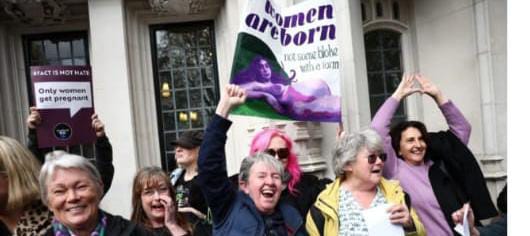The Supreme Court in the United Kingdom has ruled that transgender women do not fall within the legal definition of women under the country’s equality legislation.
The judgment, delivered by five justices on Wednesday could upend years of hard-fought progress by the trans rights movement and is already fuelling calls for a redraft of the Equality Act.
The case, a flashpoint in an increasingly polarised gender rights war, was triggered by a challenge from gender-critical campaign group For Women Scotland (FWS).
The landmark judgment, which said that the legal definition of a woman is based on biological sex, is a blow to campaigners for transgender rights, and could have far-reaching consequences for how the law is applied in Britain to single-sex spaces, equal pay claims and maternity policies.
It follows years long legal battle over whether trans women can be regarded as female under Britain’s 2010 Equality Act, which aims to prevent discrimination.
It comes amid intense, and at times bitter public debate over the intersection of transgender rights and women’s rights.
Announcing the decision on Wednesday, the deputy president of the court, Lord Hodge, said: “The unanimous decision of this court is that the terms ‘woman’ and ‘sex’ in the Equality Act 2010 refer to biological women and biological sex.
”However, he added: “We counsel against reading this judgment as a triumph of one or more groups in our society at the expense of another, it is not.”
He said the ruling “does not cause disadvantage to trans people” because they have protections under anti-discrimination and equality laws.
Lord Hodge began his remarks by acknowledging the national conversation about transgender rights and protections, and described trans people as a “vulnerable and often harassed minority,” while noting that women had fought for centuries for equal rights.He added: “It is not the task of this court to make policy on how the interests of these groups should be protected” but “to ascertain the meaning of the legislation which Parliament has enacted.”
He requested that the courtroom remain silent while the judgment was read, but gasps were heard when he announced the decision.
Campaigners from For Women Scotland, the activist group that had brought the legal challenge, started a round of applause and hugged when the hearing ended.


